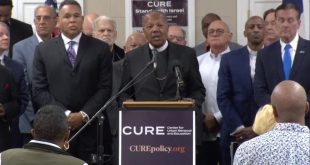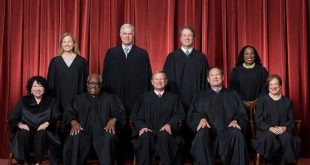 In a recent interview with Charisma News, retired pediatric neurosurgeon Ben Carson took on the “secular progressive agenda” with a candid defense of cultural conservatism.
In a recent interview with Charisma News, retired pediatric neurosurgeon Ben Carson took on the “secular progressive agenda” with a candid defense of cultural conservatism.
Carson, who has attracted national support as an outspoken advocate of traditional values, is currently being courted by fans hoping he will run for president in 2016. At the moment, he is celebrating the success of his latest book, One Nation, which reached the top of the New York Times bestsellers list within its first week on the market.
A subject he explores extensively in the book is the left’s ongoing assault on religious freedom – especially as it relates to Bible-based morals.
Discussing this trend during the recent interview, he concluded that “the church has to stop its ‘go along to get along’ attitude.”
According to Carson, American Christians are often more interested in being accepted by society than living up to God’s standard.
“The secular progressive agenda, quite frankly, is at odds with the Judeo-Christian value system,” he declared. “If you just keep quiet about it, they win by default. I’m a person that believes in live and let live; but I don’t believe you should suppress what you believe so that you don’t create waves or cause a problem.”
When asked how Christians can love the gay community without excusing its sinful lifestyle, Carson offered a nuanced but highly principled take.
“If they want to have legal relationship so that they can have visitation rights and property transfer, I don’t have a problem with that,” he said. “What I do have a problem with is changing the definition of marriage. This is established by human history of thousands of years.”
He made an interesting comparison to a topic about which there is little divergent opinion: mathematics.
“What the gay marriage advocates are advocating is something like a new set of mathematicians who come along and say that two plus two is five,” he stated. “Then you’ve got the traditional mathematicians that say two plus two is four – it’s always been four. The new ones say that, no, we insist that it’s five. The old ones say then, OK, we’ll say that it’s four and you can say that it’s five. But the new ones are insistent that it’s five for you, too; and if you don’t say that it’s five, then you’re a mathist or a mathophobe.”
Photo Credit: Gage Skidmore (Creative Commons)
BCN editor’s note: This article first appeared at Western Journalism.
 CURE News and Clergy Blog News and Commentary for Christians
CURE News and Clergy Blog News and Commentary for Christians



